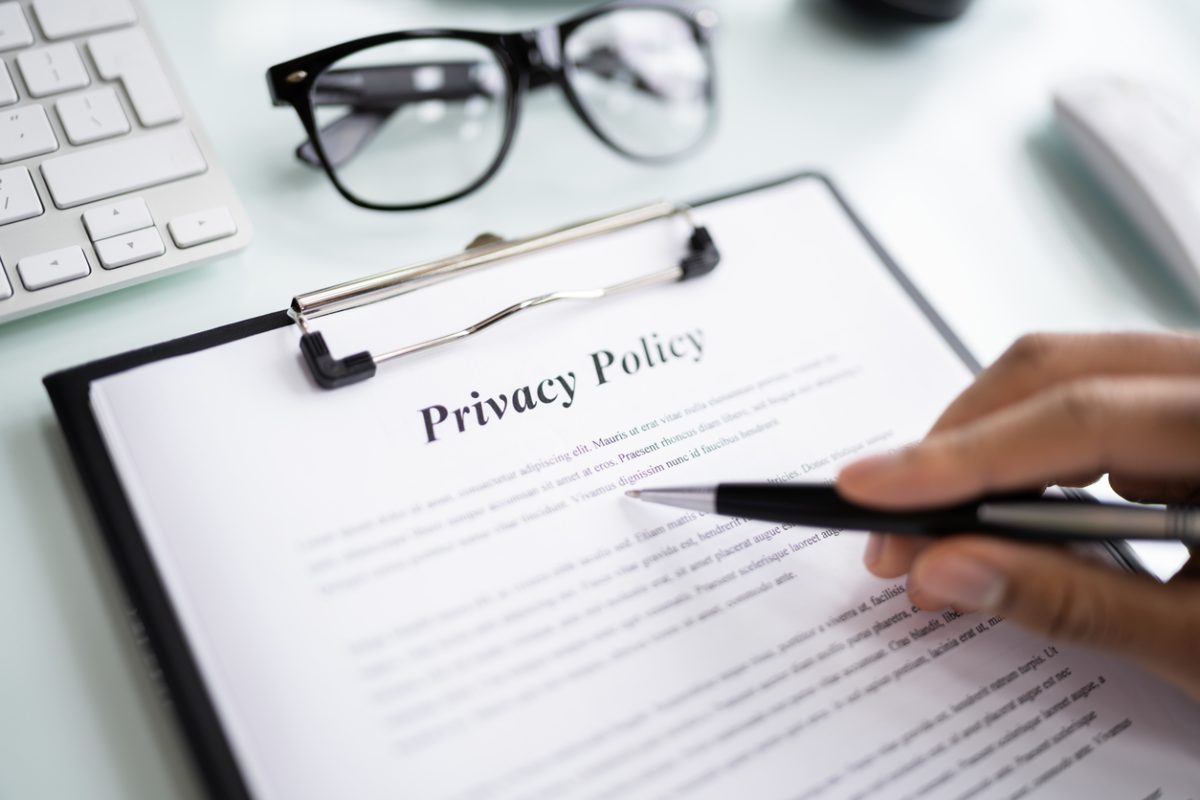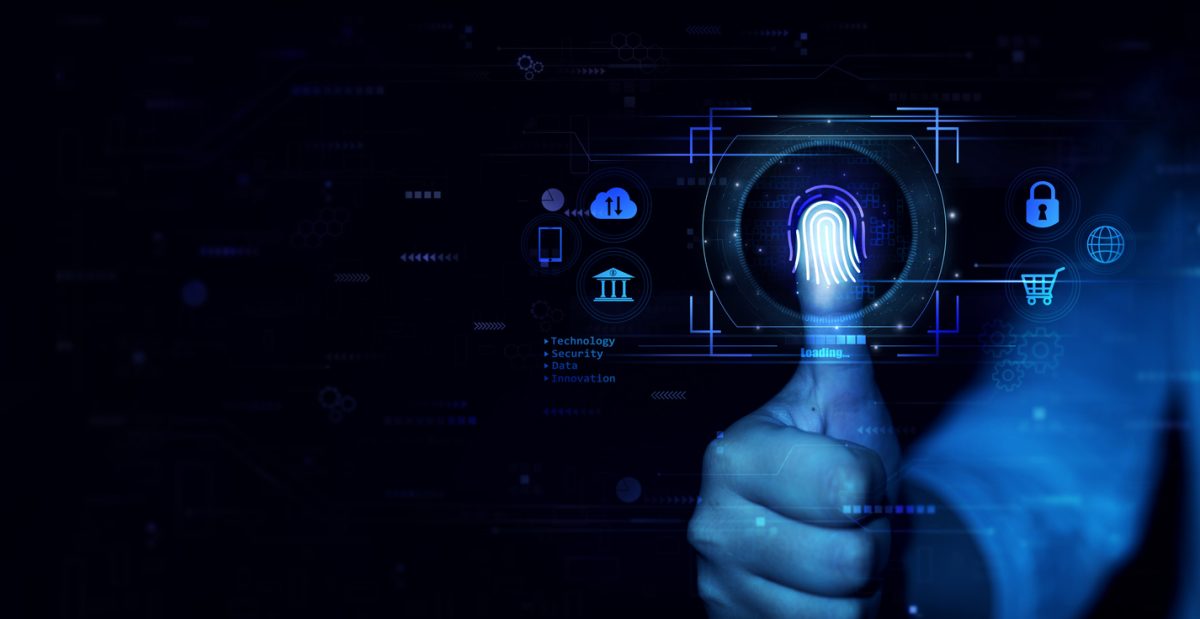Introduction: The Consequences of Our Own Making
Every generation is shaped by the choices of those who came before it. History is a continuous loop of progress and unintended consequences. The industrial revolution ushered in an era of unprecedented economic growth but also laid the foundation for the climate crisis that now threatens the planet. Economic policies designed to encourage prosperity led to immense wealth but also entrenched economic inequality on a global scale. Social structures developed centuries ago institutionalized racism and discrimination, forcing modern societies to dismantle and rebuild fairer systems.
While many of today’s crises were set in motion long before we were born, there is one problem that is uniquely ours—the erosion of privacy in the digital age. Unlike other inherited issues, this is a crisis that we are actively creating. The rise of digital connectivity, once celebrated as a revolution in communication and information sharing, has evolved into the largest and most reckless social experiment in human history. We did not lose our privacy overnight; we willingly surrendered it in exchange for convenience, personalization, and free services that came at an invisible cost.
This is not just a problem for today—it is a crisis that will define the future. If we fail to act, we will be the last generation to have known what privacy was. Our children and grandchildren will not fight for privacy because they will have never experienced it. They will inherit a world where surveillance is not just widespread but inescapable, where every action, decision, and interaction is tracked, analyzed, and exploited for profit or control.
The question before us is not whether privacy is worth protecting—it is whether we are willing to be the generation that lets it die.
The Illusion of Control: How We Traded Privacy for Convenience
It is tempting to believe that our loss of privacy is solely the result of corporate greed or government overreach. However, the reality is far more complicated. The erosion of privacy did not happen through force—it happened through persuasion. We did not wake up one morning and find our personal data exposed to surveillance networks. Rather, we were coaxed into surrendering it, one small decision at a time.
At first, the trade-offs seemed harmless. The rise of search engines, social media platforms, and online retailers brought unprecedented convenience. Google offered instant access to any information imaginable. Facebook connected people across the world. Amazon made shopping effortless. These platforms provided seemingly free services, but there was an unspoken cost—our personal data.
The personalization of digital experiences was an early warning sign. Recommendation algorithms learned to suggest products before we even searched for them. Streaming services predicted our preferences with unsettling accuracy. Digital assistants like Siri and Alexa became ever-present, listening to our commands, learning from our habits, and shaping our interactions with technology. Instead of questioning these conveniences, we embraced them.
At the same time, companies buried their true intentions within labyrinthine terms-of-service agreements, written in legalese designed to discourage scrutiny. We clicked “I agree” without reading, accepting whatever conditions were imposed upon us. Every app, every service, every update required another concession of privacy. We assumed that corporations had our best interests at heart, trusting them to safeguard our information.
Then the warning signs emerged. The Cambridge Analytica scandal revealed how personal data was used to manipulate elections. Edward Snowden’s disclosures exposed mass government surveillance programs that monitored the digital activities of ordinary citizens. Reports surfaced of tech companies selling sensitive user data to third-party brokers, who in turn used it to influence everything from shopping behavior to political ideology. Yet, despite these revelations, the public reaction was largely apathetic. People continued using the same platforms, clicking the same agreements, and allowing the cycle of data exploitation to continue.
The illusion of control remains one of the greatest barriers to digital privacy reform. Many people believe they can manage their online presence by adjusting settings, using private browsing, or limiting the personal information they share. In reality, the infrastructure of surveillance is so deeply embedded in the digital ecosystem that avoiding it is nearly impossible. Even when users attempt to minimize their data exposure, companies find new ways to track and profile them. The system is designed not to offer true choice, but to create the appearance of choice while ensuring that data collection remains uninterrupted.
The Power We Gave Away: The Rise of Corporate and Government Surveillance
For decades, tech corporations have engaged in an arms race to collect as much data as possible. Personal information is the most valuable asset in the modern economy, and companies have devised increasingly sophisticated methods to extract it. Every search, every purchase, every social media interaction feeds into an algorithm designed to predict and influence behavior.
The consequences of this data-driven economy extend far beyond targeted advertising. The integration of corporate surveillance with government oversight has created a system where privacy is no longer a right but a privilege that must be actively defended. In some cases, the consequences are immediate. Individuals have been denied loans, insurance, and job opportunities based on algorithmic profiling. In other cases, the impact is more insidious—subtle manipulations of online content that shape public opinion and influence societal norms.
Perhaps the most extreme example of this surveillance economy is China’s Sesame Score, also known as the Social Credit System. Developed by Ant Financial, a subsidiary of Alibaba, this system assigns citizens a score based on their behavior, both online and offline. Individuals with high scores receive rewards such as lower interest rates, priority access to services, and favorable treatment in job applications. Those with low scores, however, face severe consequences, including travel restrictions, higher loan rates, and social exclusion.
At its core, the Sesame Score is a mechanism of control. It discourages dissent by linking social behavior to tangible outcomes. People learn to self-censor, avoid controversial topics, and conform to government-approved norms. The surveillance is comprehensive—financial transactions, social media activity, and even interactions with neighbors contribute to an individual’s score.
Many in the West view China’s social credit system as an authoritarian overreach, but a closer look reveals that a similar framework is quietly taking shape in democratic societies. Instead of a government-mandated score, we have a decentralized system controlled by private corporations.
Banks use predictive analytics to determine creditworthiness, considering not only financial history but also online activity and social connections. Insurance companies monitor consumer behavior, using data from wearable devices and social media to adjust premiums. Employers rely on AI-driven hiring tools that analyze digital footprints to assess potential hires. Meanwhile, social media companies curate content feeds using opaque algorithms that prioritize corporate and political interests, subtly shaping public discourse.
Unlike China’s centralized system, where citizens at least know they are being scored, the Western version of surveillance capitalism is largely hidden from view. People are not explicitly told that their online behavior is influencing their access to financial, employment, and social opportunities. This makes the system even more dangerous—it operates without transparency, accountability, or public awareness.
The rise of this hidden scoring system represents a fundamental shift in the nature of power. Decisions that were once made by human judgment are now dictated by machine learning models that operate without ethical oversight. The result is a society where autonomy is gradually eroded, replaced by a system of algorithmic control.
The Road to a Digital Dystopia: What the Future Holds If We Do Not Act
If we continue down this path, the consequences will be profound. We are heading toward a future where every aspect of life is dictated by data, where decisions are made not by individuals but by algorithms optimized for corporate and governmental control.
Imagine a world where artificial intelligence determines who gets a job, who qualifies for a loan, and who is considered trustworthy. In this future, insurance companies analyze real-time health data to adjust coverage, banks monitor spending habits to predict financial stability, and social platforms manipulate information flows to shape ideological perspectives.
The erosion of privacy will not just lead to a loss of autonomy—it will redefine what it means to be human. If we do not fight for privacy now, we will not just be the first generation to live without it.
Regulatory Failures: Why Existing Privacy Laws Are Inadequate
Despite growing awareness of privacy violations, most regulatory efforts have been inadequate in addressing the full scope of the problem. Lawmakers have attempted to curb corporate overreach and government surveillance through policies like the General Data Protection Regulation (GDPR) in Europe and the California Consumer Privacy Act (CCPA) in the United States. However, these laws have done little to fundamentally change the power dynamics of digital surveillance.
The GDPR, hailed as one of the strongest data protection laws in the world, was designed to give users more control over their personal data. It requires companies to disclose how they collect and use data, mandates user consent for tracking, and allows individuals to request the deletion of their personal information. While the regulation has led to greater transparency, it has largely failed in its core mission of reducing mass data collection. Instead, it has created an environment where corporations bombard users with misleading cookie consent banners, subtly coercing them into compliance. The opt-out mechanisms are often intentionally complex, designed to dissuade individuals from taking full advantage of their rights.
Moreover, GDPR enforcement has been weak. Tech giants like Google, Meta, and Amazon continue to engage in aggressive data collection practices with minimal consequences. Fines imposed under GDPR, while substantial in numerical terms, are often insignificant in comparison to the profits these companies generate from user data. For example, in 2021, Amazon was fined $887 million for GDPR violations—a seemingly large penalty but a mere fraction of the company’s annual revenue. These financial penalties, even when they reach into the hundreds of millions, are often treated as the cost of doing business rather than as true deterrents.
Similarly, the California Consumer Privacy Act (CCPA), introduced in 2020, aimed to give users greater transparency and control over their personal data. It granted Californians the right to request information about the data companies collect and the ability to opt out of its sale. However, like the GDPR, the CCPA is riddled with loopholes. Companies have exploited vague language in the law, using deceptive practices to limit consumer control. Additionally, enforcement has been inconsistent, and the burden remains on consumers to navigate the confusing opt-out processes.
The fundamental flaw in both GDPR and CCPA is that they operate under an opt-out model rather than an opt-in model. Under current regulations, companies are free to collect, store, and analyze personal data by default, and it is up to individuals to take action if they want to reclaim their privacy. This system benefits corporations at the expense of consumers, as most people do not have the time, knowledge, or patience to constantly monitor and adjust their digital settings.
To truly address the surveillance crisis, legislation must shift toward an opt-in framework, where data collection is not the default but a choice explicitly granted by users. This would fundamentally alter the power dynamics between individuals and corporations, forcing companies to justify their data collection practices rather than assuming consent.
The Need for Opt-In Privacy: A Radical but Necessary Shift
The only way to dismantle the surveillance economy is to change the rules that govern it. Instead of forcing individuals to navigate complex settings to protect their data, privacy should be the default. This means moving toward an opt-in system, where companies must obtain clear, explicit consent before collecting, sharing, or selling personal information.
Under an opt-in model, companies would need to provide transparent explanations of why data is being collected, how it will be used, and who will have access to it. Instead of burying these details in pages of legal jargon, businesses would have to present this information in a clear, digestible format that users can easily understand.
One of the strongest arguments for an opt-in system is that it aligns with consumer preferences. Studies have repeatedly shown that people care deeply about their privacy when given a clear choice. A 2021 Pew Research study found that 79% of Americans are concerned about how their personal data is used by companies, yet most feel powerless to stop it. An opt-in system would restore agency to individuals, allowing them to make informed decisions about their digital footprint.
The push for opt-in privacy is not just about individual control—it is about reshaping the economic incentives of the digital world. In the current system, companies make billions by collecting and selling data, often without user awareness. If they were required to obtain explicit consent, they would have to develop new business models that do not rely on mass surveillance.
For example, companies could transition to subscription-based services rather than relying on ad-driven revenue. Consumers could pay for ad-free experiences that do not require invasive data collection. This model already exists in industries like streaming entertainment (Netflix, Spotify), and it could be applied to social media, search engines, and digital communication platforms.
Additionally, businesses could implement privacy-preserving technologies such as decentralized data storage and blockchain-based identity management. These innovations would allow users to retain control over their personal information while still benefiting from digital services.
While critics argue that an opt-in model would hurt corporate profits, this concern is overblown. Companies that respect user privacy and offer meaningful choices would likely gain a competitive advantage, as trust in digital platforms continues to decline. Privacy-conscious consumers would flock to businesses that prioritize ethical data practices, creating a market incentive for companies to shift toward transparent, user-first policies.
The Role of Government: Enforcing Meaningful Privacy Protections
While consumer-driven change is essential in addressing the erosion of privacy, the fight for digital autonomy cannot rely solely on individual action. Governments must take stronger steps to regulate data collection and surveillance, ensuring that corporations are held accountable for their practices. Without comprehensive federal legislation, the burden of protecting privacy remains on individuals, who are often ill-equipped to navigate the complexities of digital tracking. A patchwork of state and regional laws, such as the California Consumer Privacy Act (CCPA), has attempted to address privacy concerns, but these efforts have been fragmented and insufficient. What is needed is a national framework that applies uniform protections across industries and geographic boundaries.
A meaningful privacy law must establish mandatory opt-in consent as the standard for data collection. This means that companies should be required to obtain explicit permission from users before collecting, sharing, or selling personal information. Privacy must be the default setting, not an option buried within confusing menus and legal jargon. Instead of forcing individuals to opt out of surveillance, companies should be required to justify their data collection practices and convince users to opt in. By shifting the balance of power, such a policy would ensure that data collection becomes the exception rather than the rule.
For privacy laws to be effective, they must include severe penalties for violations. Companies that engage in deceptive data practices should face fines that are proportional to their annual revenue, ensuring that violations are not merely treated as the cost of doing business. Repeat offenders should face escalating consequences, including restrictions on their ability to collect and process personal data. Currently, fines imposed under regulations like the General Data Protection Regulation (GDPR) are substantial in absolute terms but insignificant relative to the profits generated from data exploitation. Without real consequences, corporations have no incentive to change their practices.
Another critical aspect of privacy legislation should be the establishment of a right to control one’s digital history. Instead of the limited and often impractical “right to be forgotten” provisions seen in existing laws, individuals should have a genuine right to manage their personal data. This means that users must be able to request the deletion of their data across all platforms, with companies obligated to comply in a timely and transparent manner. Moreover, personal data should not be stored indefinitely. Companies should be required to justify prolonged data retention, ensuring that user information is not hoarded indefinitely for undisclosed purposes.
In addition to protecting individuals from corporate overreach, governments must impose restrictions on artificial intelligence surveillance. Predictive analytics, facial recognition, and behavioral profiling are increasingly being used to monitor and control populations without transparency or oversight. Privacy legislation must require that AI-driven decision-making processes be explainable, auditable, and subject to ethical review. Companies that use AI to determine hiring decisions, creditworthiness, or law enforcement predictions must be required to disclose how these systems operate and be held accountable for any biases or inaccuracies that emerge.
Transparency must also extend to corporate data accountability. Tech companies should be required to publish regular privacy reports detailing their data collection practices, third-party partnerships, and government requests for user information. This level of transparency would allow regulators and the public to scrutinize the extent of corporate surveillance and identify potential abuses of power. Too often, companies operate in secrecy, obscuring their data-sharing agreements and lobbying efforts behind closed doors. Only by mandating full transparency can the public hold corporations accountable for their actions.
Beyond corporate regulation, international cooperation is necessary to prevent privacy laws from being undermined by corporate lobbying. Many of the strongest privacy regulations, such as GDPR, have been weakened due to pressure from Big Tech. Regulators must remain independent and well-funded, free from political interference that seeks to dilute consumer protections. Without strong oversight, even well-intentioned laws can become ineffective, riddled with loopholes that companies exploit to continue their surveillance practices.
The fight for digital privacy is not just about protecting individual data—it is about defending democracy itself. The unchecked power of corporations and government agencies to track, profile, and manipulate populations poses an existential threat to civil liberties. Mass surveillance does not only infringe on personal freedom; it shapes political discourse, influences elections, and enables authoritarian control. If left unchallenged, the erosion of privacy will lead to a world where individuals have no autonomy over their own identities, where dissent is silenced not through force, but through algorithmic suppression.
Governments must recognize that privacy is not an antiquated concept, nor is it an inconvenience that can be sacrificed in the name of technological progress. It is a fundamental human right that must be protected with the same vigilance as freedom of speech and due process. The stakes could not be higher. If privacy is not safeguarded now, future generations will inherit a world where surveillance is so deeply embedded in everyday life that it becomes impossible to resist. The time for action is now, before privacy is relegated to history as a forgotten relic of the past.
Reclaiming the Future: Why This Fight Matters Now More Than Ever
We are at a pivotal moment in history. The decisions we make today will determine whether future generations inherit a world where privacy is preserved or one where surveillance is inescapable. The stakes could not be higher.
If we do nothing, the next generation will never know what it means to have true privacy. They will grow up in a society where their every move is tracked, their thoughts are shaped by algorithms, and their opportunities are dictated by invisible data-driven forces. They will not fight for privacy because they will not know that it was ever an option.
But if we act now, we can change course. We can demand stronger privacy laws, support ethical businesses, and advocate for opt-in policies that put users first. We can challenge the assumption that surveillance is inevitable and work toward a digital future that respects personal autonomy.
The battle for privacy is not lost. But it requires action—real, sustained, and collective action. If we fail to act, we will not just be the first generation to live without privacy.
We will be the last generation to have had it at all.









